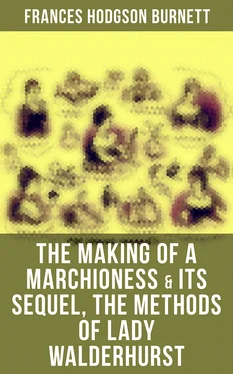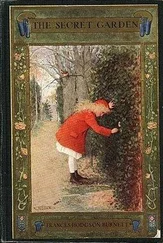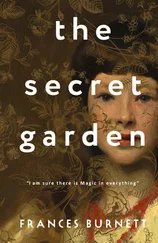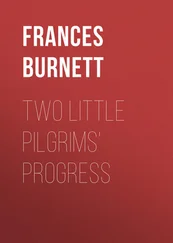During her stay at Mallowe in the summer, Lady Maria always gave a village treat. She had given it for forty years, and it was a lively function. Several hundred wildly joyous village children were fed to repletion with exhilarating buns and cake, and tea in mugs, after which they ran races for prizes, and were entertained in various ways, with the aid of such of the house-party as were benevolently inclined to make themselves useful.
Everybody was not so inclined, though people always thought the thing amusing. Nobody objected to looking on, and some were agreeably stimulated by the general sense of festivity. But Emily Fox-Seton was found by Lady Maria to be invaluable on this occasion. It was so easy, without the least sense of ill-feeling, to give her all the drudgery to do. There was plenty of drudgery, though it did not present itself to Emily Fox-Seton in that light. She no more realised that she was giving Lady Maria a good deal for her money, so to speak, than she realised that her ladyship, though an amusing and delightful, was an absolutely selfish and inconsiderate old woman. So long as Emily Fox-Seton did not seem obviously tired, it would not have occurred to Lady Maria that she could be so; that, after all, her legs and arms were mere human flesh and blood, that her substantial feet were subject to the fatigue unending trudging to and fro induces. Her ladyship was simply delighted that the preparations went so well, that she could turn to Emily for service and always find her ready. Emily made lists and calculations, she worked out plans and made purchases. She interviewed the village matrons who made the cake and buns, and boiled the tea in bags in a copper; she found the women who could be engaged to assist in cutting cake and bread-and-butter and helping to serve it; she ordered the putting up of tents and forms and tables; the innumerable things to be remembered she called to mind.
“Really, Emily,” said Lady Maria, “I don’t know how I have done this thing for forty years without you. I must always have you at Mallowe for the treat.”
Emily was of the genial nature which rejoices upon even small occasions, and is invariably stimulated to pleasure by the festivities of others. The festal atmosphere was a delight to her. In her numberless errands to the village, the sight of the excitement in the faces of the children she passed on her way to this cottage and that filled her eyes with friendly glee and wreathed her face with smiles. When she went into the cottage where the cake was being baked, children hovered about in groups and nudged each other, giggling. They hung about, partly through thrilled interest, and partly because their joy made them eager to courtesy to her as she came out, the obeisance seeming to identify them even more closely with the coming treat. They grinned and beamed rosily, and Emily smiled at them and nodded, uplifted by a pleasure almost as infantile as their own. She was really enjoying herself so honestly that she did not realise how hard she worked during the days before the festivity. She was really ingenious, and invented a number of new methods of entertainment. It was she who, with the aid of a couple of gardeners, transformed the tents into bowers of green boughs and arranged the decorations of the tables and the park gates.
“What a lot of walking you do!” Lord Walderhurst said to her once, as she passed the group on the lawn. “Do you know how many hours you have been on your feet to-day?”
“I like it,” she answered, and, as she hurried by, she saw that he was sitting a shade nearer to Lady Agatha than she had ever seen him sit before, and that Agatha, under a large hat of white gauze frills, was looking like a seraph, so sweet and shining were her eyes, so flower-fair her face. She looked actually happy.
“Perhaps he has been saying things,” Emily thought. “How happy she will be! He has such a nice pair of eyes. He would make a woman very happy.” A faint sigh fluttered from her lips. She was beginning to be physically tired, and was not yet quite aware of it. If she had not been physically tired, she would not even vaguely have had, at this moment, recalled to her mind the fact that she was not of the women to whom “things” are said and to whom things happen.
“Emily Fox-Seton,” remarked Lady Maria, fanning herself, as it was frightfully hot, “has the most admirable effect on me. She makes me feel generous. I should like to present her with the smartest things from the wardrobes of all my relations.”
“Do you give her clothes?” asked Walderhurst.
“I haven’t any to spare. But I know they would be useful to her. The things she wears are touching; they are so well contrived, and produce such a decent effect with so little.”
Lord Walderhurst inserted his monocle and gazed after the straight, well-set-up back of the disappearing Miss Fox-Seton.
“I think,” said Lady Agatha, gently, “that she is really handsome.”
“So she is,” admitted Walderhurst—“quite a good-looking woman.”
That night Lady Agatha repeated the amiability to Emily, whose grateful amazement really made her blush.
“Lord Walderhurst knows Sir Bruce Norman,” said Agatha. “Isn’t it strange? He spoke of him to me to-day. He says he is clever.”
“You had a nice talk this afternoon, hadn’t you?” said Emily. “You both looked so—so—as if you were enjoying yourselves when I passed.”
“Did he look as if he were enjoying himself? He was very agreeable. I did not know he could be so agreeable.”
“I have never seen him look as much pleased,” answered Emily Fox-Seton. “Though he always looks as if he liked talking to you, Lady Agatha. That large white gauze garden-hat”—reflectively—“is so very becoming.”
“It was very expensive,” sighed lovely Agatha. “And they last such a short time. Mamma said it really seemed almost criminal to buy it.”
“How delightful it will be,” remarked cheering Emily, “when—when you need not think of things like that!”
“Oh!”—with another sigh, this time a catch of the breath,—“it would be like Heaven! People don’t know; they think girls are frivolous when they care, and that it isn’t serious. But when one knows one must have things,—that they are like bread,—it is awful!”
“The things you wear really matter.” Emily was bringing all her powers to bear upon the subject, and with an anxious kindness which was quite angelic. “Each dress makes you look like another sort of picture. Have you,”—contemplatively—“anything quite different to wear tonight and tomorrow?”
“I have two evening dresses I have not worn here yet”—a little hesitatingly. “I—well I saved them. One is a very thin black one with silver on it. It has a trembling silver butterfly for the shoulder, and one for the hair.”
“Oh, put that on tonight!” said Emily, eagerly. “When you come down to dinner you will look so—so new! I always think that to see a fair person suddenly for the first time all in black gives one a kind of delighted start—though start isn’t the word, quite. Do put it on.”
Lady Agatha put it on. Emily Fox-Seton came into her room to help to add the last touches to her beauty before she went down to dinner. She suggested that the fair hair should be dressed even higher and more lightly than usual, so that the silver butterfly should poise the more airily over the knot, with its quivering, outstretched wings. She herself poised the butterfly high upon the shoulder.
“Oh, it is lovely!” she exclaimed, drawing back to gaze at the girl. “Do let me go down a moment or so before you do, so that I can see you come into the room.”
She was sitting in a chair quite near Lord Walderhurst when her charge entered. She saw him really give something quite like a start when Agatha appeared. His monocle, which had been in his eye, fell out of it, and he picked it up by its thin cord and replaced it.
Читать дальше












